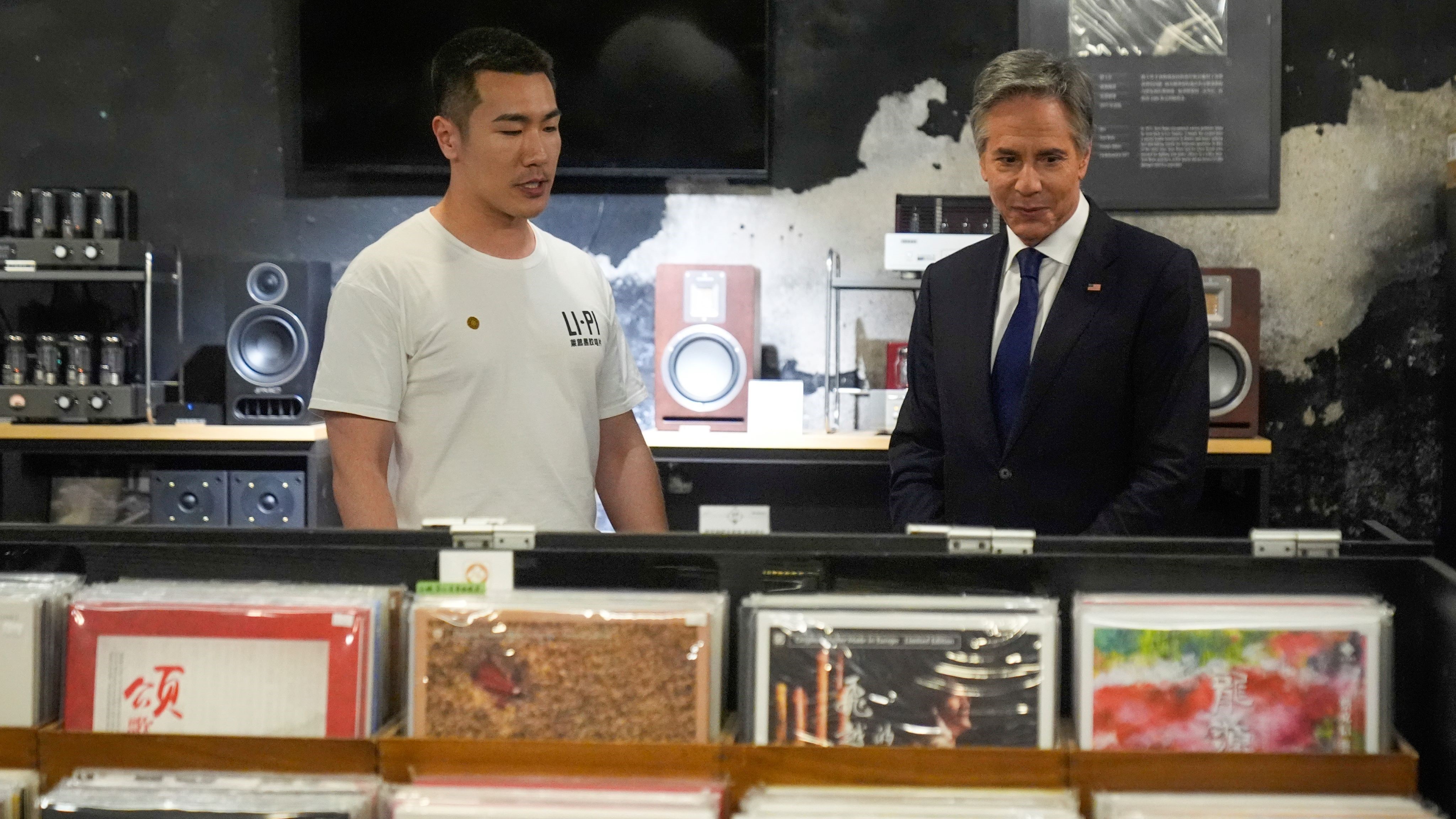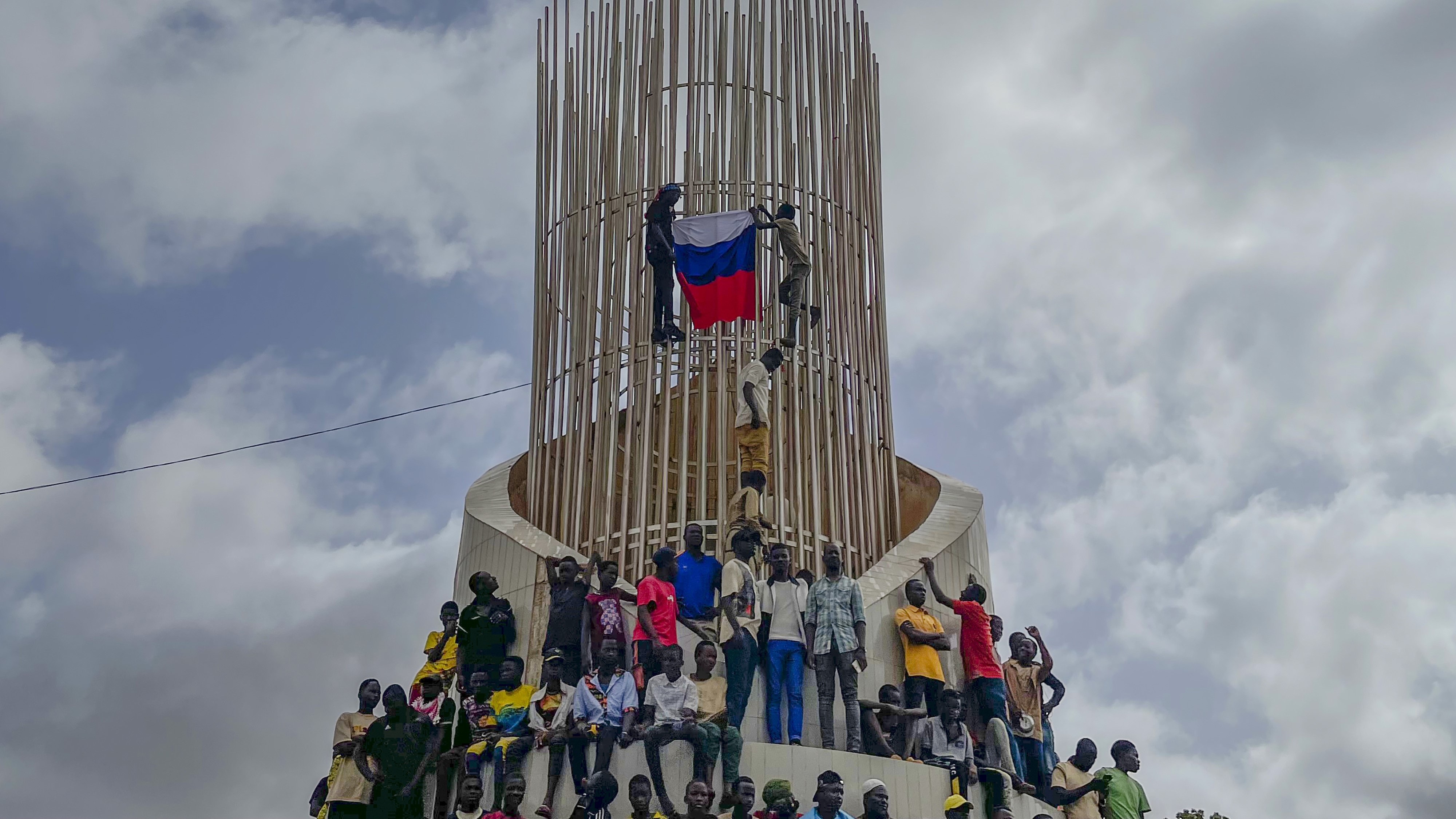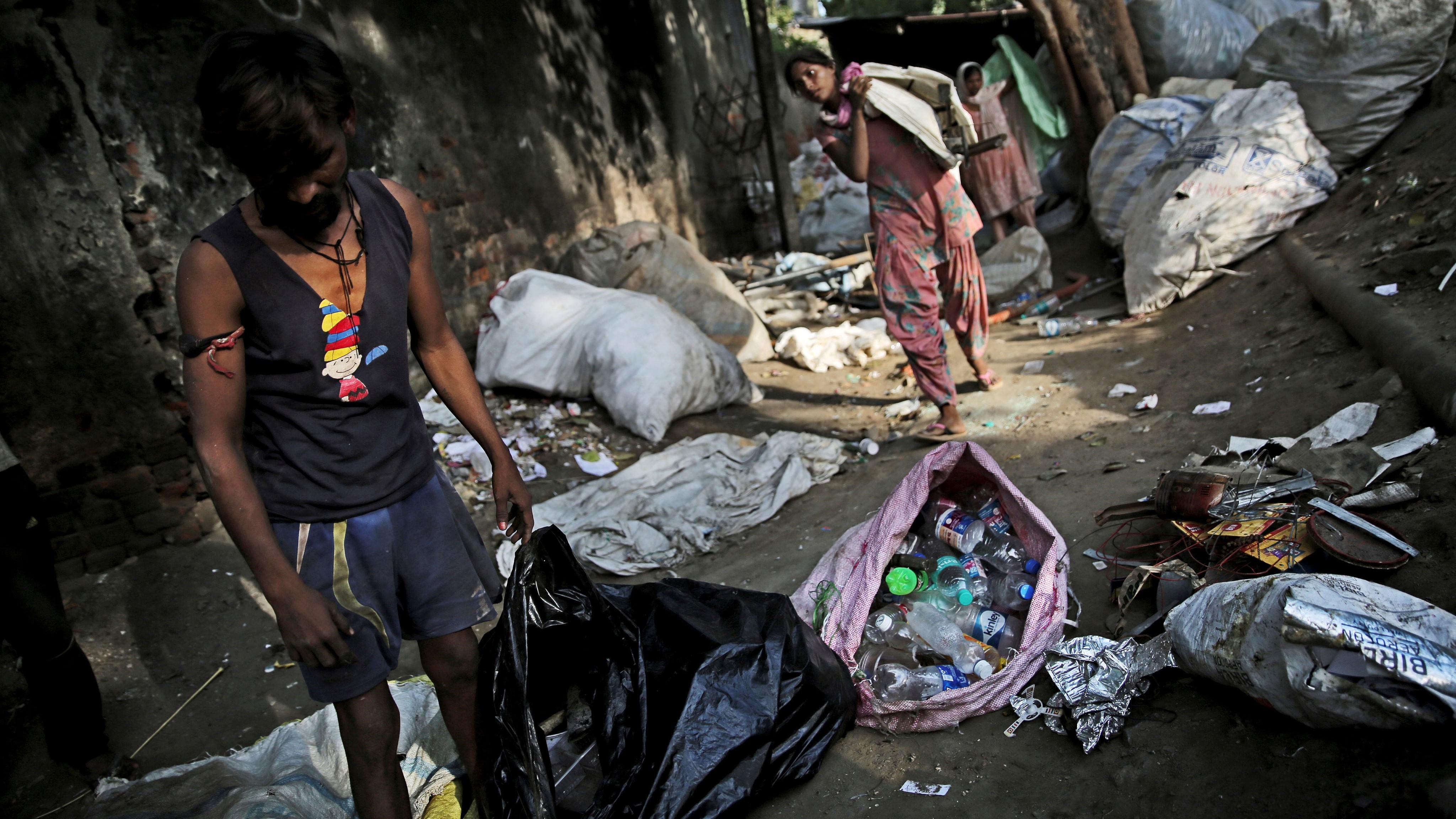WPR Review
"The U.S. and China's populations are decoupling."
Views expressed in this U.S., World, and Geopolitical News update are those of the reporters and correspondents. Accessed on 30 April 2024, 2049 UTC.
Content and Source: https://mail.google.com/mail/u/0/?tab=rm&ogbl#inbox/FMfcgzGxStxSrSjTbhGHfHTVQLHzgsNs/WPR Review.
Please scroll down to read your selections. Thanks for joining us today.
Russ Roberts (https://trendsingeopolitics.blogspot.com).
|
|
 |
April 30, 2024 |
Hello, everyone. Today at WPR, we’re covering the decline of people-to-people exchange between the U.S. and China, as well as geopolitical competition in West Africa. |
But first, here’s our take on today’s top story: |
ICC: Israeli officials believe that the International Criminal Court is preparing to issue arrest warrants for senior Israeli leaders, including potentially PM Benjamin Netanyahu, as well as leaders from Hamas. The ICC launched an investigation in 2021 into alleged war crimes on both sides in the Palestinian territories, with the investigation covering events since 2014. (The Guardian) |
Our Take: The potential charges against Israeli officials and Hamas leaders underscores the ICC’s renewed relevance in recent years. That resurgence began in 2022, when the court opened an investigation into Russia’s actions in Ukraine, and received another boost a year later, when it issued an arrest warrant for Russian President Vladimir Putin. |
Established in 2002, the ICC exists as the court of last resort to prosecute individuals responsible for war crimes, crimes against humanity, genocide and the crime of aggression. Charges can be brought either because a state is unable to hold the perpetrators accountable themselves, due to an inadequate judicial system or insufficient resources, or because it is simply unwilling to do so. |
Notably, though, the court doesn’t have the ability to carry out arrests itself. That responsibility falls on the 124 member states that have signed on to the Rome Statute, which founded the ICC. But that list doesn’t include the U.S., Russia, China or Israel, and even member states don’t always deliver those charged with crimes to the court. |
The renewed relevance of the ICC, however, is likely to be accompanied by renewed criticism of the court. In the past, that criticism has mainly come from African governments and populations, because until a few years ago, almost all of the cases brought by the ICC were against actors in Africa. That fueled accusations not only that the court was biased but that it purposely only targeted less powerful states that it knew would be less able to defend themselves. |
In recent years, though, as the court began to investigate and charge actors from more powerful states, it has triggered pushback from them as well. Former U.S. President Donald Trump waged an aggressive campaign to prevent the ICC from bringing charges against U.S. troops or officials over possible war crimes committed in Afghanistan. Then, in 2020, he authorized sanctions against ICC workers involved in that investigation, as well as those investigating Israel for alleged abuses in the Palestinian territories. |
President Joe Biden later lifted those sanctions, but the episode raised questions about the ICC’s ability to hold powerful states accountable. That concern has resurfaced due to the fact that Putin has yet to face any consequences for his alleged crimes, though the ICC warrant has somewhat hampered his ability to travel abroad and caused him and Russia reputational damage. Were arrest warrants issued for Netanyahu and other Israeli officials, a similar dynamic would likely play out. |
To be sure, the impact of the reputational damage Israel would incur, particularly at a time when it is diplomatically isolated due to the war in Gaza, would not be insignificant. But it’s extremely unlikely any Israeli officials would end up in the ICC’s custody. Instead, with the renewed relevance of the ICC, as well as the International Court of Justice and the concept of universal jurisdiction, arrest warrants against Israeli officials would ensure that the question of how to hold powerful states accountable doesn’t go away anytime soon. |
Sponsor |
Finally stop spam texts with Incogni
In February alone, spammers sent out over 19.2 billion texts. That’s every person in the U.S. receiving around 19 spammy texts in just one month. Ever wonder where they get your info to begin with? |
Data brokers. They sell your address, phone number, Social Security number, family contacts to anyone willing to pay. And, yes, it’s all legal as long they give you a way to opt out. |
The problem? They make the opt-out process as difficult as possible. Remove your data from over 180 data brokers’ and people-search sites automatically with Incogni. Get your 50% off here! |
 |
U.S. Secretary of State Antony Blinken and U.S. Treasury Secretary Janet Yellen each made recent visits to China in which they sought to humanize the U.S.-China relationship, and perhaps signal to the Chinese people that Americans have a fondness for all sorts of things about China, even if that doesn’t extend to its government. |
Still, as columnist Mary Gallagher writes, with limited access to uncensored information in China and people-to-people exchanges between the two countries at very low levels, that distinction is harder to make than perhaps ever before. |
|
The recent decision by the military junta ruling Niger to revoke the country’s security partnership with the U.S. was the latest in a series of developments that have remade the geopolitical landscape of West Africa. |
Earlier in February, Burkina Faso, Mali and Niger had announced their intentions to leave the regional bloc ECOWAS, and they are now discussing plans to turn their bloc, the Alliance of Sahel States, or AES, into a confederation. |
The combined result of all these shifts, as well as others across West Africa, is a more competitive playing field for the outside powers seeking influence in a volatile region, Afolabi Adekaiyaoja writes. |
|
 |
Question of the Day: In the lead-up to the 2024 South Korean parliamentary elections, President Yoon Suk Yeol’s comments on the price of which of the following vegetables were used by the opposition to show how out of touch he is with the general public? |
Find the answer in the latest WPR Weekly Quiz, then read Joel Atkinson’s briefing on the election results. |
 |
El Salvador’s legislature approved a change to the country’s constitution that will allow for other amendments to be passed more quickly. The move further consolidates power in the hands of President Nayib Bukele and his New Ideas party, which overwhelmingly controls Congress, and could be a precursor to moves that would allow the populist strongman to remain in power indefinitely. |
Bukele is incredibly popular in El Salvador, largely because of a heavy-handed crackdown on gangs that led to mass civil rights abuses, but has also made the country safer. As James Bosworth wrote when he was reelected in February, though, Bukele’s authoritarian actions and attitudes are likely to leave El Salvador worse off in the long run. |
|
***** |
Negotiations to create a treaty to end global plastic pollution continued in Ottawa this week, the fourth of five scheduled meetings on the issue. The talks moved on to discussions of the treaty text, considered a sign of progress even as sharp disagreements about whether to put global limits on plastic production remain. The final scheduled meeting will take place later this year. |
The world’s long-standing love affair with plastics has come to a seemingly rapid end over the past decade, as the synthetic material’s implications for the planet and its inhabitants have become clear. As Kate O’Neill wrote in 2020, the backlash has grown to the point that, at the risk of hyperbole, it can accurately be described as a “global war on plastics.” |
|
***** |
The U.S. ambassador to the U.N. said Washington is appealing to all countries, specifically mentioning the UAE, to stop providing weapons and other support to the warring parties in Sudan’s civil war. The UAE has denied any involvement in the conflict, but its support for the RSF paramilitary group is at this point well known. Still, as Elfadil Ibrahim wrote in February, the UAE’s stance has largely backfired, putting its goals in Sudan in serious jeopardy. |
***** |
The Chinese Communist Party’s central committee will meet in July for the Third Plenum, a key meeting in China’s political calendar that is normally used to announce important economic and political reforms. Notably, though, the third plenum of this committee was expected to happen in the fall, but did not take place. As Mary Gallagher wrote in January, the postponement was likely an attempt to delay announcing major policy shifts amid China’s current economic troubles. |
More From WPR
|
Read all of our latest coverage here. |
| Copyright © 2024 World Politics Review LLC, All rights reserved. You are receiving this email because you are subscribed to our free daily newsletter.
|







Comments
Post a Comment
Welcome to my geopolitics blog site. This is a Hawaii Island news site focusing on geopolitical news, analysis, information, and commentary. I will cite a variety of sources, ranging from all sides of the political spectrum.